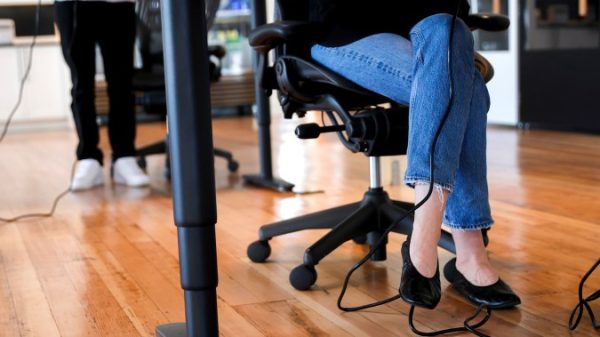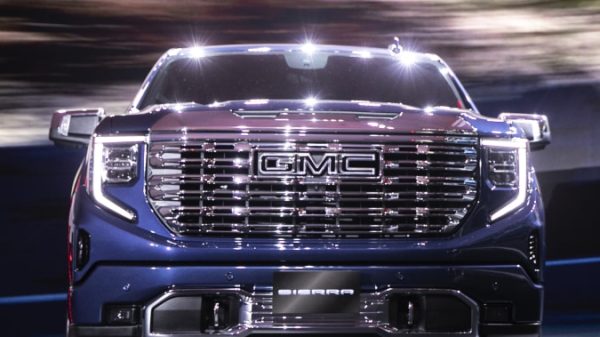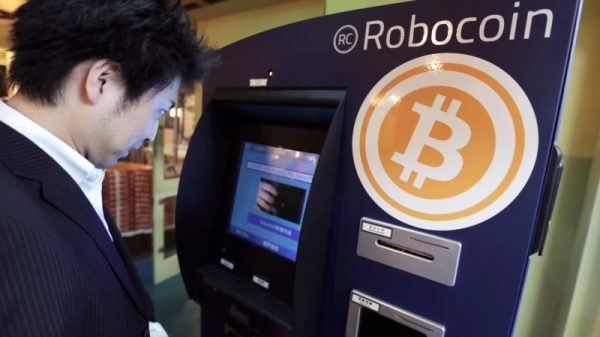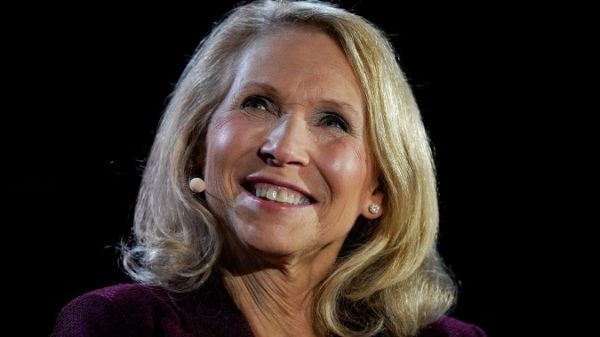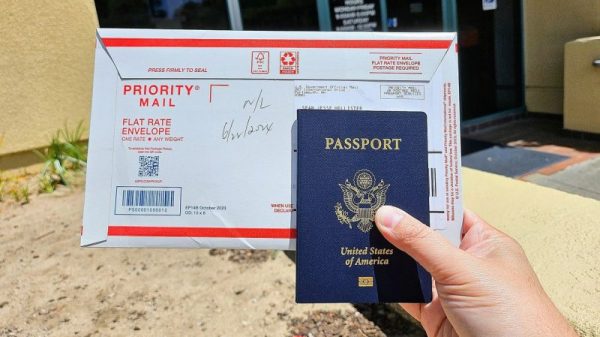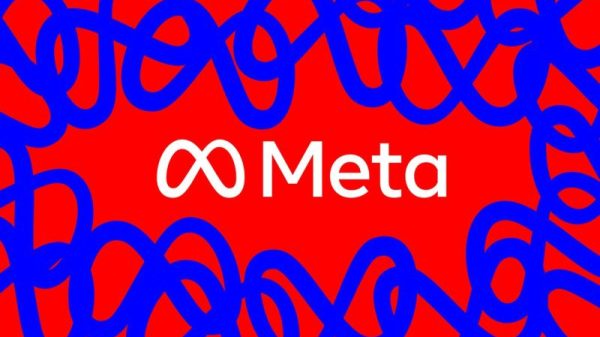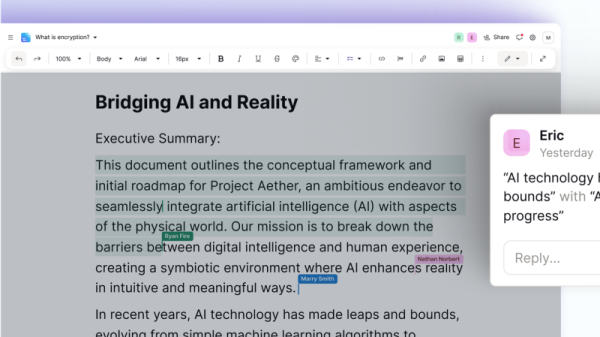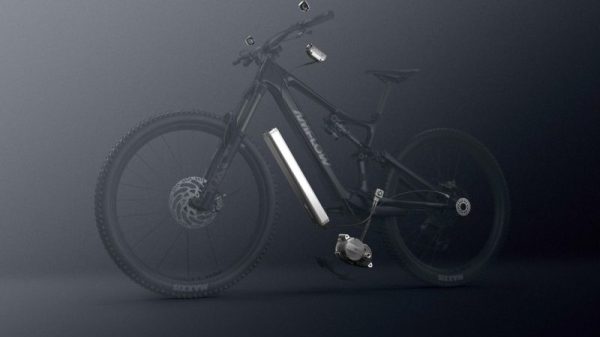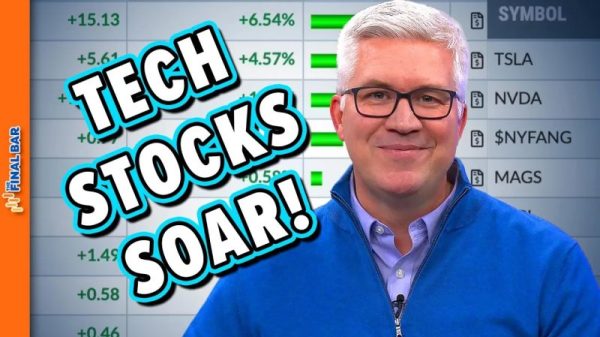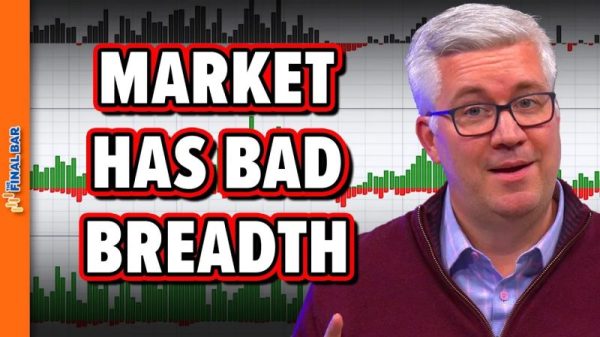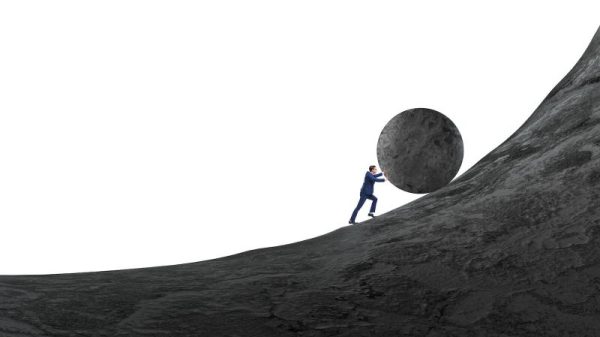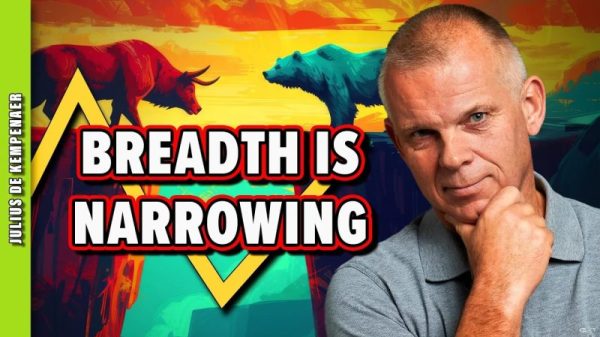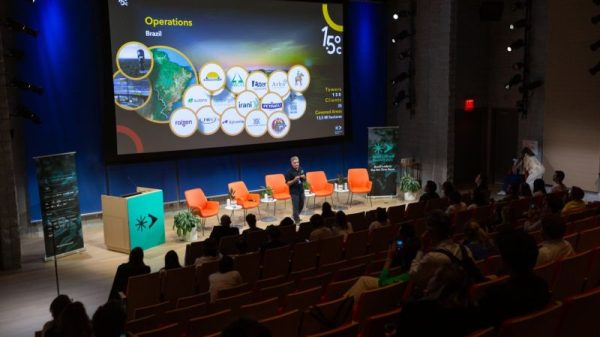The 2012 Republican presidential nominating contest was a race unlike any other. For a time it seemed as if virtually everyone got a stint as front-runner: not just Mitt Romney, but also Rick Perry, Rick Santorum, Newt Gingrich and even unknown quantities like the late Godfather’s Pizza CEO Herman Cain. All except Rep. Michele Bachmann (Minn.) led at some point.
The 2024 race is not that race. Donald Trump is the consistent, growing, going-away favorite, despite (or perhaps because of) his criminal indictments.
But what we do now have is an emerging contest to be the front-runner of the also-rans — and perhaps, in an altogether distant reality, the viable Trump alternative.
Florida Gov. Ron DeSantis’s decline in the polls nationally has been evident for a while. But new Fox Business surveys in Iowa and South Carolina are even worse for him. He’s now just five points clear of Sen. Tim Scott (S.C.) in Iowa and bunched with Scott and former South Carolina governor Nikki Haley in those candidates’ home state. Hence the campaign reboot.
It’s a scenario whose wisdom the anyone-but-Trump folks have questioned: Allowing the other non-Trump candidates to spend all their time duking it out with DeSantis to become the Trump alternative instead of taking on Trump himself. All the while, the former president skates to the nomination unscathed.
It turns out they didn’t really even need to engage DeSantis; he has dropped largely on his own. But the reality remains the same, with the battle for No. 2 now more pitched.
Whether that No. 2 slot is worth much is another matter. Washington Post columnist Philip Bump suggests it might not be. But campaign politics abhors inertia.
So who could it be? Below are our latest bimonthly rankings of the 10 candidates most likely to be the next GOP presidential nominee — with a particular emphasis on the hopefuls in what is now a more wide-open second tier.
As usual, the candidates are ranked in order of likelihood to be nominated, with No. 1 being most likely.
The decision by New Hampshire Gov. Chris Sununu not to run opened up a slot on this list, and the former Arkansas governor gets it almost by default. His Trump-critical message just isn’t what the party is looking for, and even if it were, somehow, former New Jersey governor Chris Christie makes a lot more sense. (Previous ranking: n/a)
The North Dakota governor has apparently effectively bought his way onto the debate stage next month. He met the Republican National Committee’s donor threshold by giving people who donate $1 to his campaign a $20 gift card. That means he will be there while others on this list, possibly including former vice president Mike Pence, might not. Perhaps that’s worth something. We shall see. (Previous ranking: 9)
Ramaswamy, a biotech entrepreneur, now polls as effectively the third-place candidate in this race, with his average at nearly 7 percent. But that’s nationally, and the Iowa and South Carolina polls show him further back. It’s a reflection of a solid effort to build a national profile but perhaps not as much to compete where it matters most. And the hurdle here is being not just someone that “anti-woke” conservatives like, but also someone voters actually can see as their nominee. A political novice has done it before, but nobody else is Donald Trump. (Previous ranking: 10)
Perhaps nobody will draw more eyeballs on the debate stage than Christie, who has signaled he’ll use the platform to go hard at Trump. The problem: Trump might not be there, with an adviser saying it’s “unlikely.” The other problem: Republicans really dislike Chris Christie. (Previous ranking: 8)
Now we approach the second tier. Pence was third on this list last time. But, like Christie, he has a popularity problem. For Pence, it’s less that he’s roundly disliked and more that among those who like him, very few seem to like him enough to actually support him. Hence his remarkably meager $1.2 million fundraising quarter and apparent struggles to attract enough donors to get himself on the debate stage. Just consider that: A recent former vice president — the one who’s usually next in line in nominating contests — might not even make the debate stage. (Previous ranking: 3)
The only person on this list who isn’t in the race, the Virginia governor is obviously waiting to see if there’s actually space for a Trump alternative and if someone else hasn’t claimed that mantle. DeSantis’s problems must have him at least somewhat more intrigued; Trump’s growing strength probably counteracts that. (Previous ranking: 6)
I’d still consider Haley the “upside” candidate in this race — the one who could really surprise people, but probably won’t. She has carefully sought a middle ground between dinging Trump like Christie has and defending the former president. She’s taken to suggesting that people should worry about the indictments — and that Trump brought this upon himself. But she’s perhaps less Iowa-friendly than either DeSantis or Scott, and she can’t really count on her home state to make her impact. (Previous ranking: 4)
Scott’s 11 percent, third-place showing in the Iowa poll — five points behind DeSantis’s 16 percent — has to be heartening. Scott is the most broadly acceptable, inoffensive candidate in the race, but the question was whether enough people would actually give him a serious look. For now, I see him as the most likely to get a shot at a boomlet if DeSantis continues to implode. It certainly helps that his super PAC has lined up $40 million in air cover. Whether he has the capabilities to take advantage of such a situation is very much unknown; his campaign hasn’t always been smooth sailing. (Previous ranking: 5)
Where to begin? DeSantis’s campaign reboot appears to have dragged on for more or less two weeks. He’s laying off staffers amid financial worries. He’s saying many of the same things despite promising a different message. His insistence on running hard to the right has created problems with his very-online staff, including most recently a head-scratching feud with Rep. Byron Donalds (Fla.), a Black Republican, in which Team DeSantis brought a bazooka to a boxing match. And meanwhile, his core argument — electability — appears to have disappeared. He’s still the clear No. 2, but for how long? (Previous ranking: 2)
It really says something when, on Thursday, we were all anticipating a fresh indictment against Trump and instead got further charges in the case in which he had already been indicted. Such is Trump’s fast-growing legal jeopardy. The evidence of a coverup in the Mar-a-Lago documents case only appears to be getting more serious. Really going after Trump on this stuff obviously isn’t fun, and every candidate will prefer to leave that to the likes of Christie. But at some point, maybe everyone recognizes that the existing approach isn’t working? The problem, of course, is that going down that road might lead not just to losing in 2024, but also to torpedoing your whole career. (Previous ranking: 1)
Others worth mentioning: former White House national security adviser John Bolton, former Wyoming congresswoman Liz Cheney, former Texas congressman Will Hurd, former California gubernatorial candidate Larry Elder and Miami Mayor Francis Suarez.
The 2012 Republican presidential nominating contest was a race unlike any other. For a time it seemed as if virtually everyone got a stint as front-runner: not just Mitt Romney, but also Rick Perry, Rick Santorum, Newt Gingrich and even unknown quantities like the late Godfather’s Pizza CEO Herman Cain. All except Rep. Michele Bachmann (Minn.) led at some point.
The 2024 race is not that race. Donald Trump is the consistent, growing, going-away favorite, despite (or perhaps because of) his criminal indictments.
But what we do now have is an emerging contest to be the front-runner of the also-rans — and perhaps, in an altogether distant reality, the viable Trump alternative.
Florida Gov. Ron DeSantis’s decline in the polls nationally has been evident for a while. But new Fox Business surveys in Iowa and South Carolina are even worse for him. He’s now just five points clear of Sen. Tim Scott (S.C.) in Iowa and bunched with Scott and former South Carolina governor Nikki Haley in those candidates’ home state. Hence the campaign reboot.
It’s a scenario whose wisdom the anyone-but-Trump folks have questioned: Allowing the other non-Trump candidates to spend all their time duking it out with DeSantis to become the Trump alternative instead of taking on Trump himself. All the while, the former president skates to the nomination unscathed.
It turns out they didn’t really even need to engage DeSantis; he has dropped largely on his own. But the reality remains the same, with the battle for No. 2 now more pitched.
Whether that No. 2 slot is worth much is another matter. Washington Post columnist Philip Bump suggests it might not be. But campaign politics abhors inertia.
So who could it be? Below are our latest bimonthly rankings of the 10 candidates most likely to be the next GOP presidential nominee — with a particular emphasis on the hopefuls in what is now a more wide-open second tier.
As usual, the candidates are ranked in order of likelihood to be nominated, with No. 1 being most likely.
The decision by New Hampshire Gov. Chris Sununu not to run opened up a slot on this list, and the former Arkansas governor gets it almost by default. His Trump-critical message just isn’t what the party is looking for, and even if it were, somehow, former New Jersey governor Chris Christie makes a lot more sense. (Previous ranking: n/a)
The North Dakota governor has apparently effectively bought his way onto the debate stage next month. He met the Republican National Committee’s donor threshold by giving people who donate $1 to his campaign a $20 gift card. That means he will be there while others on this list, possibly including former vice president Mike Pence, might not. Perhaps that’s worth something. We shall see. (Previous ranking: 9)
Ramaswamy, a biotech entrepreneur, now polls as effectively the third-place candidate in this race, with his average at nearly 7 percent. But that’s nationally, and the Iowa and South Carolina polls show him further back. It’s a reflection of a solid effort to build a national profile but perhaps not as much to compete where it matters most. And the hurdle here is being not just someone that “anti-woke” conservatives like, but also someone voters actually can see as their nominee. A political novice has done it before, but nobody else is Donald Trump. (Previous ranking: 10)
Perhaps nobody will draw more eyeballs on the debate stage than Christie, who has signaled he’ll use the platform to go hard at Trump. The problem: Trump might not be there, with an adviser saying it’s “unlikely.” The other problem: Republicans really dislike Chris Christie. (Previous ranking: 8)
Now we approach the second tier. Pence was third on this list last time. But, like Christie, he has a popularity problem. For Pence, it’s less that he’s roundly disliked and more that among those who like him, very few seem to like him enough to actually support him. Hence his remarkably meager $1.2 million fundraising quarter and apparent struggles to attract enough donors to get himself on the debate stage. Just consider that: A recent former vice president — the one who’s usually next in line in nominating contests — might not even make the debate stage. (Previous ranking: 3)
The only person on this list who isn’t in the race, the Virginia governor is obviously waiting to see if there’s actually space for a Trump alternative and if someone else hasn’t claimed that mantle. DeSantis’s problems must have him at least somewhat more intrigued; Trump’s growing strength probably counteracts that. (Previous ranking: 6)
I’d still consider Haley the “upside” candidate in this race — the one who could really surprise people, but probably won’t. She has carefully sought a middle ground between dinging Trump like Christie has and defending the former president. She’s taken to suggesting that people should worry about the indictments — and that Trump brought this upon himself. But she’s perhaps less Iowa-friendly than either DeSantis or Scott, and she can’t really count on her home state to make her impact. (Previous ranking: 4)
Scott’s 11 percent, third-place showing in the Iowa poll — five points behind DeSantis’s 16 percent — has to be heartening. Scott is the most broadly acceptable, inoffensive candidate in the race, but the question was whether enough people would actually give him a serious look. For now, I see him as the most likely to get a shot at a boomlet if DeSantis continues to implode. It certainly helps that his super PAC has lined up $40 million in air cover. Whether he has the capabilities to take advantage of such a situation is very much unknown; his campaign hasn’t always been smooth sailing. (Previous ranking: 5)
Where to begin? DeSantis’s campaign reboot appears to have dragged on for more or less two weeks. He’s laying off staffers amid financial worries. He’s saying many of the same things despite promising a different message. His insistence on running hard to the right has created problems with his very-online staff, including most recently a head-scratching feud with Rep. Byron Donalds (Fla.), a Black Republican, in which Team DeSantis brought a bazooka to a boxing match. And meanwhile, his core argument — electability — appears to have disappeared. He’s still the clear No. 2, but for how long? (Previous ranking: 2)
It really says something when, on Thursday, we were all anticipating a fresh indictment against Trump and instead got further charges in the case in which he had already been indicted. Such is Trump’s fast-growing legal jeopardy. The evidence of a coverup in the Mar-a-Lago documents case only appears to be getting more serious. Really going after Trump on this stuff obviously isn’t fun, and every candidate will prefer to leave that to the likes of Christie. But at some point, maybe everyone recognizes that the existing approach isn’t working? The problem, of course, is that going down that road might lead not just to losing in 2024, but also to torpedoing your whole career. (Previous ranking: 1)
Others worth mentioning: former White House national security adviser John Bolton, former Wyoming congresswoman Liz Cheney, former Texas congressman Will Hurd, former California gubernatorial candidate Larry Elder and Miami Mayor Francis Suarez.

